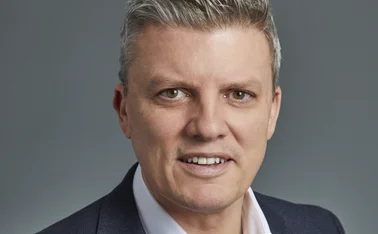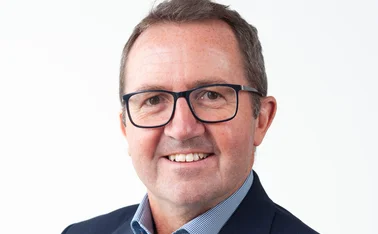
Countdown to EIS: Q&A with keynote speaker Bart De Smet

Bart De Smet, group chief executive officer for Ageas is the keynote speaker at Insurance Strategy Europe taking place in Brussels on Wednesday 21 and Thursday 23 March. In the first of a series of articles counting down to the event Insurance Insight spoke to him to find his views on the European market.
What are the biggest challenges facing the European Insurance market currently?
The most overwhelming challenge facing the insurance industry and its customers is, of course, the economy. The European sovereign debt crisis and resulting volatility in the financial markets combined with low interest rates in Northern Europe, in particular, do not represent the most favourable of operating environments for the insurance market.
The impact of a sluggish economy is also impacting product choice and we expect this in particular in non-life. At the same time decreasing disposable income, stagnating housing markets and bank lending are negatively impacting the sales of protection products. Finally, we are seeing competition from banks fuelled by Basel III and the increasing need for liquidity; and from governments with respect to the retail placement of government debt for life savings products.
How do you predict distribution will change in Europe in the next 10 years?
First, it is important to appreciate that distribution patterns can vary quite considerably market to market. This differentiation is due to a number of factors including the relative strength of a particular channel, cultural differences, history, the penetration of the internet, and local regulations. This will always be the case, so you must always look at this on a market by market basis. One of the trends we see is the emergence of an increasingly well-informed and discerning consumer with respect to personal choice. These consumers are also becoming more selective in determining which advisor to work with. At the same time the consumer will become more demanding and look for a greater variety of distribution channels to suit their needs and preferences.
New distribution channels will continue to emerge or develop, for example, affinities, financial planners, and independent risk management advisors. Regulation will also have an impact driving the need for scale in distribution allowing insurers to respond to increasing demands for greater transparency and even higher levels of professionalism. Small independent brokers are expected to be consolidated into larger distribution firms and non performing agents will disappear.
How much of a role will technology play in the insurance market of the future?
Technology will play a hugely important role in the future and this is evident in a number of different ways. Social media, for instance, is having a significant impact on corporate branding, reputation, advertising and even underwriting. We are also seeing greater influence of telematics in relation to the pricing of products, for example, ‘pay as you go' for car insurance. The internet is front and centre in the development of the insurance market and it is an important communication tool for direct sales and aggregators.
Finally, we need to look at technology as a differentiator. As insurance products become easier to replicate, product alone is no longer a differentiator on its own. The real difference will be made in terms of delivery and how effectively technology is used in, for instance, underwriting and claims handling. It is in these areas, driven by technology, that consumers will differentiate the best from the average.
How has the European customer changed over the last five years?
Europeans have been influenced in recent years by a number of different factors. Not surprisingly as a result of the financial crisis they have become more risk averse with a lower appetite for unit linked products and a higher demand for guaranteed savings products. So without doubt the economic fundamentals are driving consumers in a certain direction.
There is also a growing demand by consumers to acquire certain products where and when they want them with a greater tendency to consider a variety of different distribution channels rather than one channel for all their needs. It goes back to choice and consumer convenience - the consumer is in the driving seat with more choice than ever. The consumer wants to know that they can access all of the information they need to make their choice online, but at the same time many want to retain the capacity to seek advice when purchasing the product.
Where do you predict the biggest claims will be in Europe for 2012?
Looking at our own model within Ageas we see the greatest risk in the non-life business to be weather related events. We have seen this increase in recent years and we have to expect this phenomenon to be with us in the future. In life the greatest risk is clearly on the asset side rather than liabilities, and, in particular, investment risk given the insurers reliability on investment income to fund products. As a company we do not insure corporate risks so consequently we are less sensitive to large catastrophes.
Bart will be giving his keynote speech at 9.40am on Thursday 21 March - for more details about this session and the Insurance Strategy Europe event click here.
Only users who have a paid subscription or are part of a corporate subscription are able to print or copy content.
To access these options, along with all other subscription benefits, please contact info@postonline.co.uk or view our subscription options here: http://subscriptions.postonline.co.uk/subscribe
You are currently unable to print this content. Please contact info@postonline.co.uk to find out more.
You are currently unable to copy this content. Please contact info@postonline.co.uk to find out more.
Copyright Infopro Digital Limited. All rights reserved.
As outlined in our terms and conditions, https://www.infopro-digital.com/terms-and-conditions/subscriptions/ (point 2.4), printing is limited to a single copy.
If you would like to purchase additional rights please email info@postonline.co.uk
Copyright Infopro Digital Limited. All rights reserved.
You may share this content using our article tools. As outlined in our terms and conditions, https://www.infopro-digital.com/terms-and-conditions/subscriptions/ (clause 2.4), an Authorised User may only make one copy of the materials for their own personal use. You must also comply with the restrictions in clause 2.5.
If you would like to purchase additional rights please email info@postonline.co.uk








